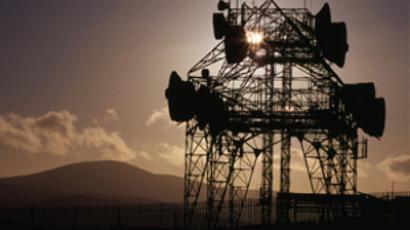Russian investors look to the upside, with further bull running in the offing

Russian stocks are pushing beyond their highest levels in a year with focus increasingly returning to the longer term Russian growth outlook, and cheap valuations.
Back to square one – off the floor
This week sees the Russian stocks moving beyond the worst of the slump triggered by the global credit crunch and ensuring economic downturn, with the RTS moving to its highest level in a year, and the MICEX to its highest level in more than 11 months. Sentiment looks to be adding to the 88% rally from the market low point in February.
Alexey Belkin, Portfolio Manager at Finam, says the rebound reflects a range of factors, including rebounding commodity prices which make up the bulk of Russia’s foreign exports. He believes there is scope for a major rally heading into the New Year, with a key driver of the rally thus far being the undervalued levels to which Russian stocks were sold off.
“Firstly, Russia’s stock market was largely undervalued. Talking about fundamental reasons – expensive oil and weakening dollar boosted investor demand, which was coupled with liquidity inflow to giants like Sberbank, Gazprombank and Rosselkhozbank, and rising prices for gold, copper, steal, which are Russia’s major exports. Technical analysis says that 1250 or 1260 points for RTS is a quite realistic level to reach by the end of this year. With the MICEX index it’s a different story, as it’s denominated in Roubles. However, we expect it to rise to the 1500 – 1550 points level by the end of 2009. Furthermore, November and December are the months when stock markets usually grow, so, this year we also expect another ‘New Year rally’ which could actually be the biggest in history.”
Weakening U.S. dollar triggers Rouble interest
Renaissance Capital analyst, Ovanes Oganesyan points to the recent weakening of the US dollar, after a year of general dollar strength as also adding to the urge by domestic investors to move out of dollar denominated positions, adding that he believes a continuing weakening of the U.S. currency will see the Russian markets rise further.
“I think expectations by Russian investors about banking sector recovery, coupled with negative trends in the American economy are pushing them out of dollar indices and switching to Rouble denominated ones.”
Oganesyan believes that whilst the undervaluation of Russian stocks pushed the rebound through later autumn and summer this year, they are now generally fairly valued, and external factors will need to kick in.
“Russian indicies were about 50% undervalued at the earlier stages of the crisis, while today, I think, they are being traded at a fair value. At the beginning of the crisis we forecast RTS would grow to its theoretical value of 1200 point, and that’s exactly where we are now. However, it could keep on growing, provided the rates go down further and risks diminish.”
He says the renewed interest is being paced by the rebound in the Russian Rouble, with investors turning to stocks which give them exposure to this, particularly in the financial sector.
“Obviously, the industries that gain from a stronger Rouble are of the highest interest for Russia’s investors. These are the banking sector, real estate, for example. The undervalued sectors, like electric power, are also among the favorites today, with the oil sector moving comparatively slowly.”
Financials first, then traditionals
Finam’s Belkin agrees, adding that Russia’s traditional strengths in energy and commodities, are likely to return to centre stage. He says that despite the slump over the course of the last year, Russia’s consumers still have more spending power than is generally recognized. He says this is going first into financials.
“Also, in this crisis households do have money in their pockets and their purchasing power is still ok. So their money will go to financial markets first before reaching the real economy, which means further growth is ahead.”
He believes that the Russia’s economy is turning into a new economic cycle which is likely to deliver strong growth, but he still believes that recovery to last years levels will take time.
“If we look at the history and go back to the crisis of 1998, we’ll see that it took the country about 5 or 6 years to recover. Indeed, this time around, the situation is different, when low interest rates and inflow of Governmental money could help Russian economy out sooner, but basically, I think, the recovery will take 4 years at least. ”













